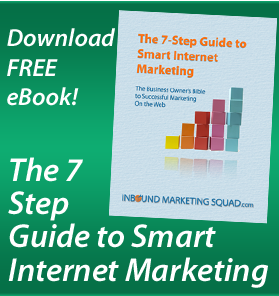 Calculating marketing return on investment has been a quest reminiscent of Sir Perceval and the Holy Grail. Until now.
Calculating marketing return on investment has been a quest reminiscent of Sir Perceval and the Holy Grail. Until now.
With the Internet now ubiquitous and inbound marketing strategies, data collection, analysis and sharing tools to hand, measuring return on marketing investment, aka ROMI, is easier than ever before.
Unless you've been hiding in a closet, you already know that more than 70% of decision makers do their research on the Internet before buying anything. Thus tracking a website visitor's actions on a website and his subsequent actions through various marketing events like lead nurturing, social marketing and email campaigns is expected, if not demanded. Particularly now that there are such sophisticated inbound marketing automation software services like HubSpot.
But for all that Perceval's (and our) quest seems to now be at an end — are we really there yet?
According to Jack Neff and his article in AdAge "Marketer's Don't Practice ROI They Preach," a study by Columbia University's Business School's Center on Global Brand Leadership and the NY Chapter of the American Marketing Association says it's a resounding "no."
No? No. Why is that?
Although being able to calculate marketing ROI helps business owners / CEOs and CMOs make two very strategic decisions:
- How much money should the organization invest in marketing to achieve its business and revenue goals? and
- How should that money be allocated across the marketing mix?
an astonishing 57% of CMOs ignore ROI metrics according to this study. Instead, they either rely on historical spend (68%), or 28% go with "gut instinct" or sadder still — 7% don't use metrics at all.
Some of this has to do with what I think of as a pissing contest around what should be tracked, how should it be tracked and what the norms need to be. To me this is a smoke screen. Enough research studies have been done over the past 5 years by reliable companies such as Marketing Sherpa, ComScore, Forrester and others, that give us proven data sets we can stake a claim against. And tracking and analysis tools already exist for measuring and sharing these same data sets that can impact campaigns in real-time.
So why don't CMOs use those ROMI metrics to advocate for resources?
Because the vast majority of CMOs are experts in traditional outbound marketing (advertising, PR, direct mail, events, etc.). Columbia's study shows that CMOs are still relying on what I call "too late" data sets -- customer demographics (74%), customer transactions (64%) and customer usage (60%). Data that is minimally useful for making strategic choices. let alone real-time campaign decisions. Traditional outbound marketing is going (if not gone already) the way of the dinosaur.
Inbound marketing is what's working today. All the latest research studies confirm that over and over again. The proven data sets are coming from inbound marketing activities. And that's outside the comfort zone of the average senior marketing executive who struggles with being held accountable to measures he doesn't (as yet) instinctively grasp.
Inbound marketing requires new knowledge, new expertise. In fact, it will be many years before the majority of marketers and CMOs have honed their "instincts" for what works. We're all still learning. And even though it sometimes feels like the learning comes from the end of a firehose, we still need to put those stakes in the ground or lose our credibility in the C-suite.
The good news is we can close the marketing-sales loop and measure most every transaction that happens along the funnel. Today, thanks to companies like HubSpot, we can have hard proof which marketing strategies and activities we invest in are actually increasing revenue versus those that are less effective.
What do you think? Have you found the Holy Grail of Marketing ROI? If so, what do you measure, what tools do you use and how do you report it? If not, why not?







